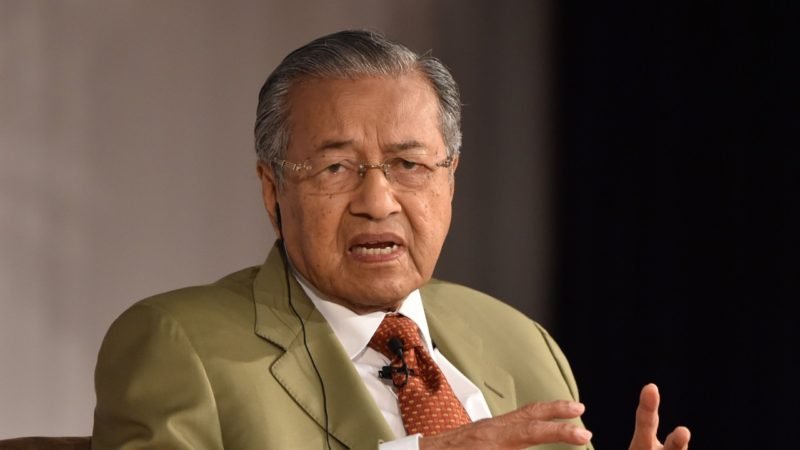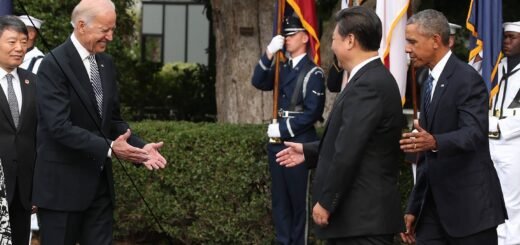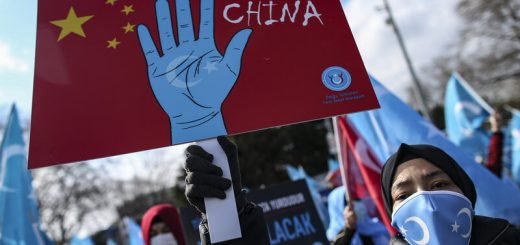Malaysian foreign policy trajectory in the aftermath of GE14

The role of Mahathir in his capacity as state representative without a Foreign Minister will now be of a balancing act, renegotiations for a prospective economic deal with regional and international partners will be at the forefront of his foreign policy – Adi Putera Anwar*
Newly sworn-in Malaysian Premiere Mahathir Mohamad did not hesitate in making his opening moves in the aftermath of a shocking win at the polls several weeks prior. The former 4th Prime Minister of Malaysia now 7th was swift in establishing key cabinet ministers in areas of Defence and Finance. Mahathir Mohamad is now poised to tackle questionable issues of rampant corruption and questionable developments which has been embedded into the Malaysian political narrative. Pursuing the promises, he has made during the campaign season, the wily statesman sighted his gaze to focusing on issues of a domestic disposition as his opening tactics instead of maneuvering proactively within the international or regional sphere in stark contrast to the foreign policy-minded administration of former Prime Minister Najib Razak. This is made evidently so with the discussion of the appointment of the next Minister of Foreign Affairs taking a backseat in favor of more domestic issues. However, whispers and speculation have fueled the possibility of Nurul Izzah Anwar, daughter of veteran politician Anwar Ibrahim, taking the helm of foreign affairs.

The role of Mahathir in his capacity as state representative without a Foreign Minister will now be of a balancing act, renegotiations for a prospective economic deal with regional and international partners will be at the forefront of his foreign policy. | Image: AFP
Regardless, Mahathir has already taken the initiative to exercise Malaysia into a more neutral and hands-off approach in its relationship with China, who Najib Razak had courted graciously throughout his tenure. Prior to the race to Putrajaya, Mahathir was able to reflect sentiments on the ground of notions that Chinese development into Malaysia does not necessarily constitute a net benefit to the latter, rather, that development from the regional power will potentially erode the agency of Malaysia and its citizens with infrastructural projects of questionable economic viability. These include the East Coast Rail Link (ECRL), a megastructure project which will see a staggering cost of 55 billion ringgit ($13.8 billion) for its construction, most of which will be provided in the form of soft loans from China.
Mahathir has instead channelled a Malaysia first element in orienting Malaysia’s priorities with China. Mahathir maintains that the agreements made between Beijing and Putrajaya will be respected but that Malaysia reserves to right to renegotiate terms that will not present a detriment to Malaysia which is experiencing a looming shadow of national debt, limiting the flexibility in making dovish gestures to China which was prevalent in the previous administration. Mahathir mixed these sentiments with languages of pragmatism which will most probably come to be a defining characteristic for the 93-year-old Prime Minister’ approach to Beijing mirroring his trademark Machiavellian outlook. The role of Mahathir in his capacity as state representative without a Foreign Minister will now be of a balancing act, renegotiations for a prospective economic deal with regional and international partners will be at the forefront of his foreign policy. This comes at an important juncture for Malaysia with China’s titanic geo-economic project in the Belt and Road initiative (BRI) are planting its roots in the Southeast. Mahathir has shown a cautionary disposition to the initiative, welcoming its implementation so long as the treaties are not detrimental to the well-being of Malaysia and its interests. The response made by Beijing in recent weeks following Malaysia’s general election is continuing its proactive endeavours in confidence building with Putrajaya. With recent appearances made by the Chinese ambassador to Malaysia, Bai Tian continuing to make statements on China’s behalf that it will continue to commit to strengthening bilateral and economic ties with Malaysia.

Mahathir has already taken the initiative to exercise Malaysia into a more neutral and hands-off approach in its relationship with China, who Najib Razak had courted graciously throughout his tenure. | Image: AP
The approach taken by Mahathir comes as no surprise, taking tried and tested steps, he has practiced during his tenure as Prime Minister throughout the 1980s up to 2003. Although exhibiting idiosyncratic and iconoclast tendencies throughout his Premiership as the 4th Prime Minister of Malaysia, the underpinning consistency of his foreign policy formulations was also heavily derived from a Malaysia first principle. Staunch in his convictions that a solid economic policy was an essential ingredient in ensuring a nation’s success. Hence, his foreign policy was articulated based on the economic conditions of Malaysia. Fast forward to current events the similarities can be observed that Mahathir has still continued to champion domestic affairs and use these events as the engine and backbone of Malaysia’s foreign policy.
However, at this current juncture, with resources diverted to home affairs, Malaysia in the aftermath of its 14th General Election (GE14), is yet to divert radically in regards to its foreign policies. A sentiment expressed by Ankit Panda, an eager observer of Malaysia’s political developments, who put forward the argument that it would take a considerable amount of time if the new administration is to pursue diverging sets of policies vis-à-vis China. What can be said is that the impact of the Malaysian election is that it can be viewed as a resounding victory for democracy and the voice of the citizens, an emotional earthquake to those championing democratic freedoms. But this does not necessarily translate into significant gains in geopolitical developments. Malaysia will most likely stay on its current trajectory with China which its divergence will depend heavily on domestic economic developments.



















